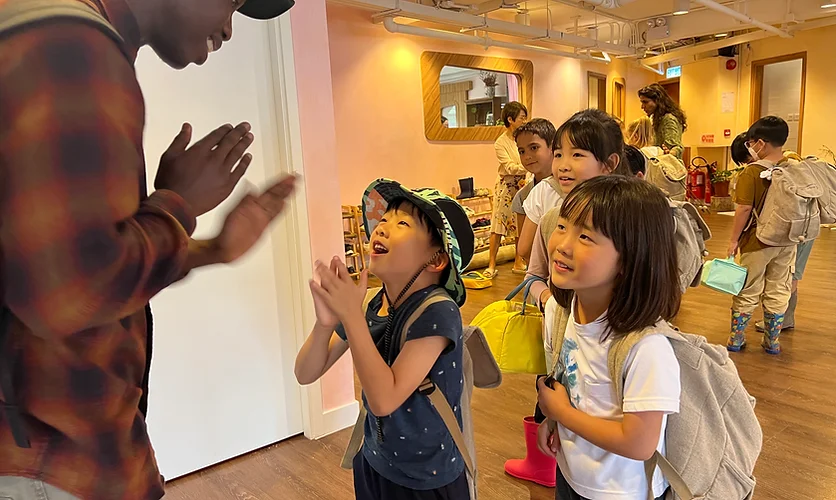In the bustling landscape of modern education, where technological advancements and standardized testing often take center stage, there exists an oasis of innovative learning Garden House. At the heart of this educational haven is the time-tested philosophy of Waldorf Education, a holistic approach designed to nurture the intellectual, emotional, and practical facets of a child’s development.
As we delve into the essence of Waldorf Education, Garden House emerges as a beacon, championing an educational journey that transcends traditional norms.
Roots of Waldorf Education: A Century of Transformation
Founded by Rudolf Steiner in 1919 in Stuttgart, Germany, Waldorf Education, also known as Steiner education, has blossomed into a global movement. The philosophy takes inspiration from anthroposophy, emphasizing a harmonious development of the mind, body, and spirit. Over the past century, the Waldorf movement has flourished, boasting over 1,100 Waldorf schools and nearly 2,000 kindergartens across 80 countries. Garden House stands proudly within this legacy, striving to enhance Waldorf education for modern times while embracing its global dimensions.
The Waldorf Approach: Guiding Growth with Imagination, Truth, and Responsibility
At the core of Waldorf Education is the belief that childhood is a sacred journey, requiring time for the unfolding of thinking, feeling, and willingness—the three soul forces. These forces, identified by Rudolf Steiner, serve as the nerve of education, shaping a child’s character and abilities. Garden House adopts an innovative educational approach, fostering independence, compassion, courage, and purpose in its students. The curriculum unfolds organically, weaving stories from fairy tales, legends, myths, and history to enrich the inner and outer lives of the students.
Savoring Childhood: Unhurried and Hands-On Learning
In a world that often demands haste, Garden House cherishes childhood as a period to be savored. Observing students at a Waldorf school reveals children immersed in the moment, exploring nature and embracing their wide-eyed sense of wonder. Waldorf Education rejects the notion of pushing children to “hurry up or fall behind,” emphasizing an unhurried childhood where learning is hands-on and age-appropriate.
Beyond Screens: Embracing Computer-Free Education
A distinctive feature of Waldorf Education is its commitment to a computer-free learning environment for young children. Contrary to the trend of early exposure to screens, Waldorf schools prioritize experiential learning. Children are not deprived of technology; rather, they are introduced to it at the right developmental stages. The focus remains on cultivating knowledge, self-awareness, and problem-solving skills through hands-on inquiry.
Block Learning: Deepening Understanding Through Concentration
Garden House follows the time-tested advantages of block learning. Students dedicate up to two hours each day to a single subject during the main lesson, rotating every 3-4 weeks. This immersive approach allows students to explore subjects thoroughly and from various perspectives, enhancing both their enjoyment and understanding of the material.
Empowering Learners: Students as Active Participants
Waldorf students at Garden House are not passive recipients of information. From the first grade to high school, they actively participate in creating their own textbooks. These personalized journals contain stories, essays, poems, maps, illustrations, lab descriptions, and math equations. This active involvement allows children to absorb lessons authentically and make learning a personal endeavor.
Well-Rounded Individuals: Fostering Balance in Education
Garden House aims to produce well-rounded individuals. Waldorf educators carefully avoid overemphasizing one trait or skill over another. Students engage in a comprehensive curriculum encompassing math, science, foreign languages, music, handwork, movement classes, and drama. This commitment to diverse experiences cultivates well-balanced individuals with high levels of confidence and the ability to apply skills across various domains.
Lifelong Passion for Learning: Shaping Intrinsic Motivation
In the realm of Waldorf Education, success is not measured by competition and test scores but is viewed as a lifelong journey. The holistic approach nurtures a child’s natural curiosity, fostering an intrinsic desire to explore the world continually. Despite sometimes being misconceived as “art schools,” Waldorf institutions produce alumni with a profound interest in the sciences—a testament to the interdisciplinary approach that permeates the curriculum.
Conclusion: Embrace the Waldorf Difference at Garden House
In a world driven by rapid changes, Garden House stands as a steadfast advocate for the enduring principles of Waldorf Education. The institution is not just a school; it’s a sanctuary where children savor an unhurried childhood, embrace hands-on learning, and evolve into well-rounded individuals with a lifelong passion for learning.
To embark on this transformative journey with Garden House and experience the profound impact of Waldorf Education, visit Garden House. Contact us today to explore how your child can thrive in an environment that cherishes imagination, truth, and responsibility. Garden House: Cultivating the seeds of a lifelong love for learning.
You may also like.
